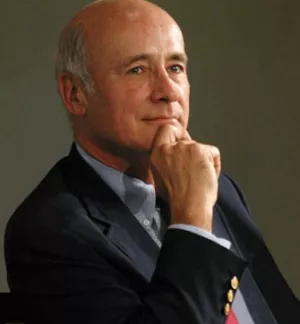As Japan has entered 2007, it will face two major security problems. Shortly after Shinzo Abe became prime minister, North Korea created a crisis by exploding a nuclear device. Less dramatic but still challenging in the longer run, China has continued its rise as an economic and military power.
While Abe quickly visited China in an effort to defuse growing tensions between the two countries, a recent poll reports that only 21% of Chinese have a favorable view of Japan, while 93% of Japanese are concerned about China's growing military power.
North Korea is the first country to withdraw from the Non-Proliferation Treaty (NPT) and test a nuclear weapon. It has returned to six-party talks on its nuclear status, but skeptics expect little progress in the near term. Japan has joined other countries in calling for United Nations Security Council sanctions against North Korea. Sanctions help to reinforce the norm of non-proliferation and show that violation of the NPT is costly.
The U.S. reiterated its security guarantees to Japan and has warned Pyongyang of dire reprisals if the U.S. discovers any nuclear exports.
Since blockading North Korean ports would not prevent nuclear exports by land or air, the key to success depends on the resolve of Beijing and Seoul in enforcing sanctions.
Nonetheless, the U.S. and Japan must be realistic in our expectations regarding sanctions. Both of North Korea's neighbors and major trading partners fear a chaotic collapse in Pyongyang and are unwilling to cut the country off completely.
Within a year or two, broad sanctions are likely to erode. Japan and the U.S. should pursue a long-term strategy that aims at the eventual denuclearization of the Korean Peninsula. Countries sometimes give up nuclear weapons, as we have seen in South Africa and Ukraine.
We can use the six-party framework to try to contain North Korea's nuclear program by offering gradual economic integration in return for a freeze in the production of fissile material, inspections by the International Atomic Energy Agency, cessation of tests and a renewed commitment to a long-term denuclearization of the Korean Peninsula.
Demise of North Korea
Some day, probably within the next decade, the North Korean regime will disappear (probably more rapidly through integration than isolation), and the prospect will improve that North Korea could follow the South African example. But again, the key will be whether China can be persuaded to place a high priority on this objective.
Some observers have speculated that Japan will change its policies and become a nuclear-weapons state. Foreign Minister Taro Aso has pointed out that Japan is capable of building nuclear weapons but for historical reasons has chosen not to do so.
Such a statement may be useful in reminding China that it has an interest in putting more pressure on North Korea. But for Japan to actually pursue such a policy would not help it to achieve its long-term objective. Japan can best preserve its security by maintaining its alliance with the U.S., pursuing joint work on missile defense, and joining with others to use the six-party framework to pursue the longer-term objective of a non-nuclear peninsula.
Dealing with the rise of Chinese power also requires a long-term perspective.
Everyone agrees that the rise of China is one of the transformative changes of this century. A recent poll reports that one-third of Americans believe China will "soon dominate the world," while 54% see the emergence of China as a "threat to world peace." A recent poll of Asian public opinion shows that relatively few countries thought China will supplant the U.S. as the world's largest power in the next decade. But if one extends the time frame to 50 years, 65% of Indians, 43% of Americans and 37% of Chinese think this will happen. Some commentators have argued that China will be as disruptive to the beginning of the 21st century as the Kaiser's Germany was to the 20th century.
In Japan, polls show that 59% doubt China will supplant the U.S. Japan may be correct. It is a mistake to exaggerate China's power. Measured by official exchange rates, China is the fourth largest economy in the world and is growing 9% annually. But its per-capita income is only $1,700, 1/25th that of the U.S. Furthermore, China's research and development is only 10% of America's.
If both the U.S. and China continue to grow at their current rates, it is possible that China's total economy could be larger than the U.S. by the middle of the century, but American per-capita income will remain four times greater. In addition, China's military power is far behind, and it lacks the soft power resources such as Hollywood and world-class universities that America enjoys.
Joseph Nye is university distinguished service professor at Harvard University and Sultan of Oman professor of international relations at Harvard's Kennedy School of Government.
Nye, Joseph. “Japan Faces Two Big Security Concerns.” Nikkei News, January 22, 2007




